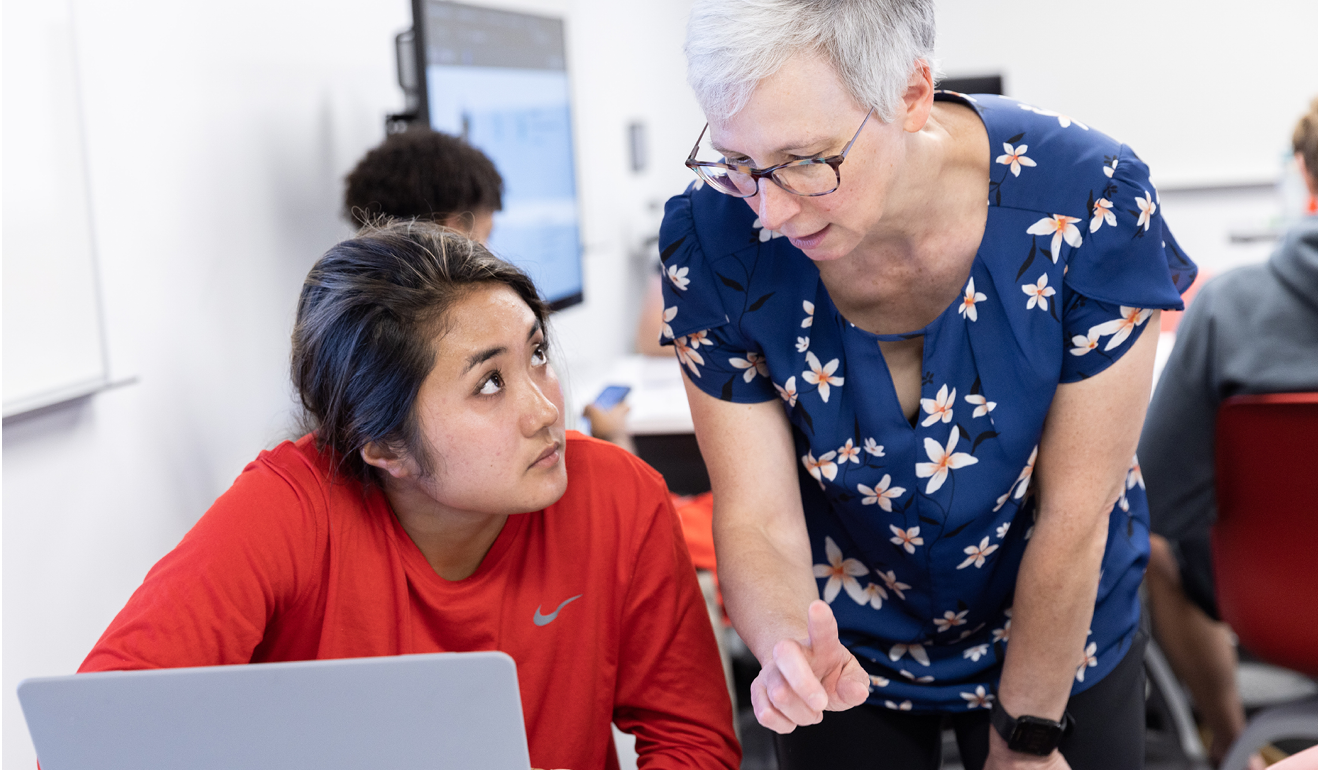Incorporating civic engagement into the college experience is not a new idea but it is becoming an increased focus for some institutions, including Ohio State University.
After five years of planning, the institution in fall 2022 launched a new general education curriculum aimed at enhancing undergraduate students’ citizenship and civic engagement skills.
“We’ve always considered citizenship to be our motto, but we wanted to give our students ability to think more deeply and contextualize on how to engage and make a difference in today’s global society and world,” said Meg Daly, associate dean of undergraduate education at Ohio State.
Overhauling the institution’s general education curriculum that had largely been unchanged since 1988 meant throwing out a framework of course options that frequently didn’t fit together.
With input from hundreds of faculty members, staff, students and top leadership, gen ed at Ohio State moved from a model distributed differently by departments to a universal program integrating civic engagement into all courses.
“This is a program that teaches students how to think about their academic and personal interests. They practice communicating and thinking critically about their world view. And they develop a plan that they exchange with others for how they will make their view happen,” said Daly.
One of the nation’s largest universities, Ohio State has more than 51,000 undergraduates, which is more than half of the institution’s student body.
Since last fall, more than 20,000 Ohio State students have already started the new 30-plus hour gen ed curriculum that begins and ends with new seminars on what it means to be a student and citizen engaging in today’s intercultural world.
During the program, students take a citizenship course and themed courses in such areas as sustainability or health and wellbeing.
Up to 25 hours of coursework also are in foundational concepts that prepare students for focused study in the theme courses and in their major. Foundational topics include historical or cultural studies, arts, mathematics or data analysis, natural sciences, diversity, social and behavioral sciences, and writing.
“We’re talking about 13 courses that are dedicated to citizenship and engagement as well as more focused concepts that can enhance students’ interest and understanding of today’s world,” said Daly.
In addition, the program is being considered by the university as a possible model for other institutions that are interested in redesigning their gen ed curriculum to fit today’s changing needs for success.
It is too early to measure results as the program is only in its second year, with students who are taking the curriculum yet to graduate.
The assessment phase of the new program is about to get underway, and in-depth analysis of its impact on student outcomes, including its effectiveness in preparing students for a changing workforce will follow, along with possible tweaks.
“We are excited to learn about growing opportunities for civic engagement that are in line with an institution’s mission,” said Barbara Gellman-Danley, president of HLC.
“We applaud Ohio State for its efforts in this arena and the lifelong benefit for the many students it serves.”
Keep Reading
Latest Issue:
-
BGD Says
-
Coming Soon: Assurance Filings in Canopy
-
Institutional Update Opens March 3
-
HLC By the Numbers: Institutions and the Criteria
-
Higher Learning 2025: See the Full Schedule
-
New Tribal Law Program Engages Navajo Nation
-
Advocacy and Higher Education Policy Update
-
10 Questions for Academy Mentor Kim Roufs
-
Civic Engagement Momentum Building at HLC Institutions
-
Promoting Educational Alignment to Workforce Needs

